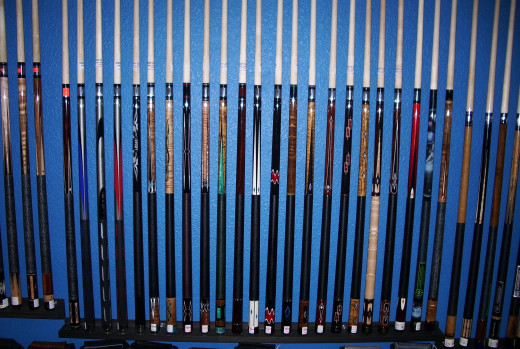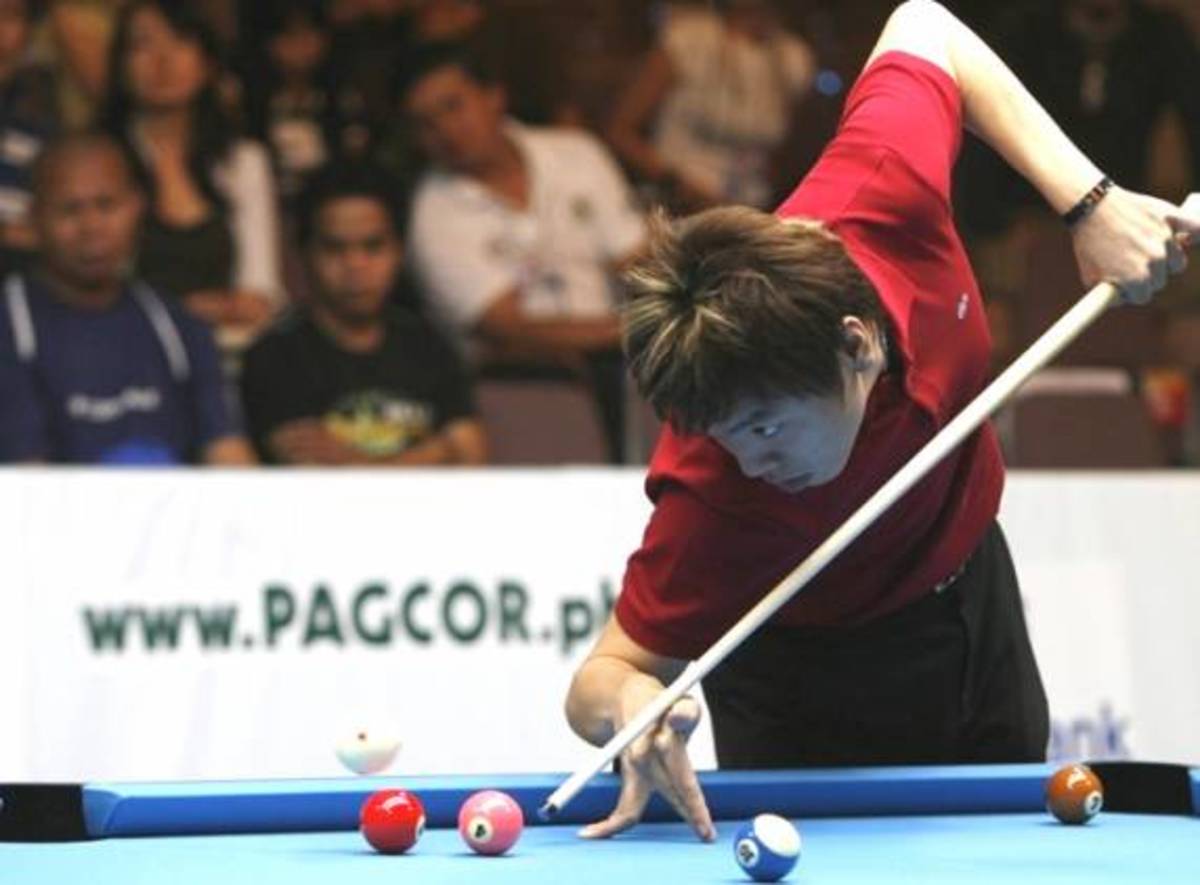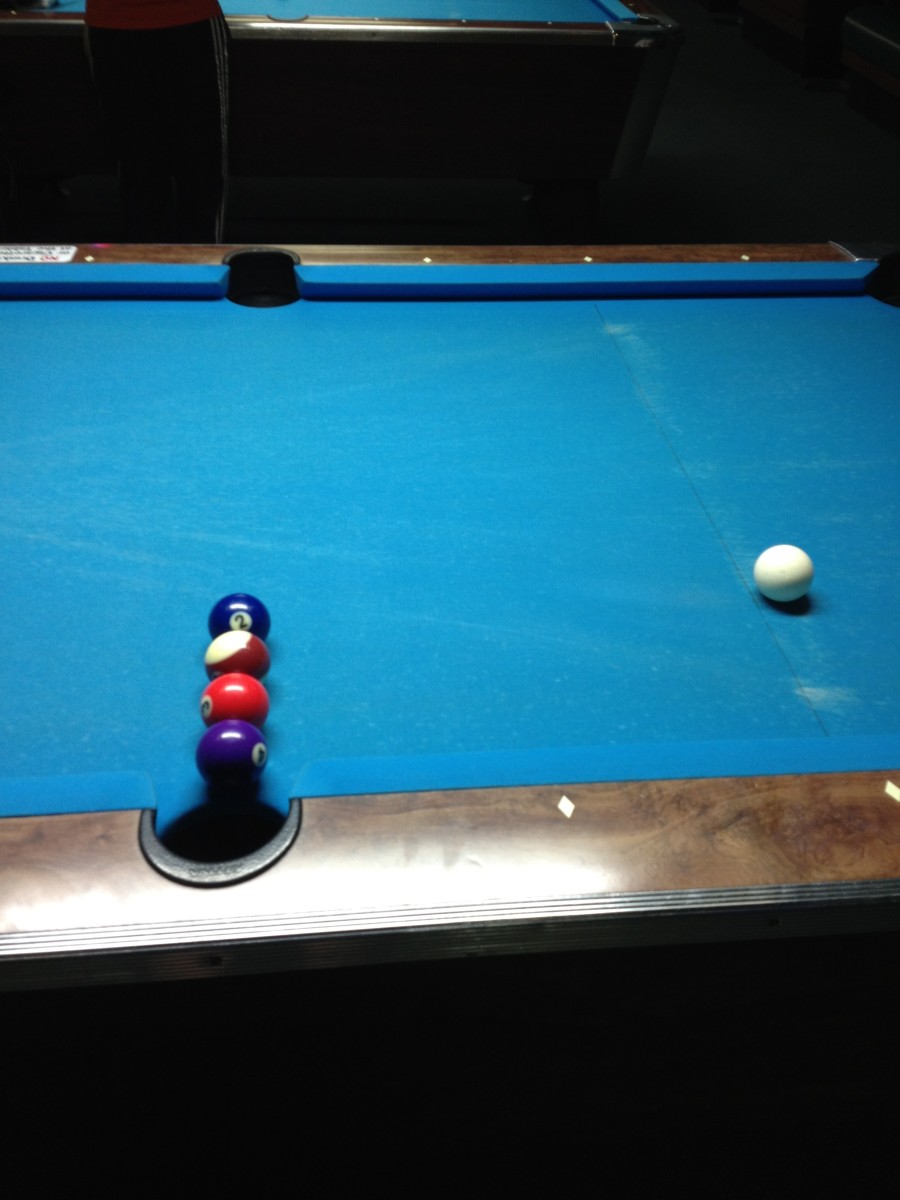Which Pool Cue Should I Buy?
Pool cues
have been around for hundreds of years. And, they have come a long way from the mace type instrument that was used to play the game when the game of billiards was first invented. Much like any other piece of sporting equipment, the technology used to build one today is significantly different than it was one hundred, or even fifty years ago. Today's pool cues are so technologically advanced, how do you know which one is right for you? Well folks, that is exactly why I am writing this hub. It will discuss some of the key differences between different types of cue designs and help you decide which one is right for you.
![By Popperipopp (Own work) [Public domain], via Wikimedia Commons By Popperipopp (Own work) [Public domain], via Wikimedia Commons](https://usercontent2.hubstatic.com/12050975_f520.jpg)
Ok, so you want to be a pool player, huh?
It's a wonderful game that I have spent thousands of hours playing. There are so many different games of pool and styles of play that almost anyone can find entertainment playing if they so choose to. From bar table 8-ball on a six or seven ft table to playing snooker on a 12 ft long table, the variations of the game of pool are almost endless. And with that being so, the types of cues available for use in all those variations of the game of pool are just about as endless.
Most folks think of different brands when they consider purchasing a cue, because they had heard an opinion of one brand's quality being better than another. Even though there is some truth to that statement, it is definitely not the end all be all of choosing a pool stick. One brand may well be better than others, but every brand has low end and high end cues, and that's where things get tricky. A cue company with a great reputation may make a wonderful high end cue, but then come to find out, their low end cues play worse than the low end cue from a company with a lesser reputation. Pool sticks are funny like that.

The Real Deal
When you want to choose a pool stick, you certainly have a lot of options. Most of the professionals would prefer to play with a custom pool cues that has been designed to their specifications, but buying a cue like that can cost upwards of several thousand dollars. If you are an amateur or even an intermediate player, that may not be an investment that you are prepared to make. So, how do you find yourself a great shooting pool cue without breaking your piggy bank? Well, in my opinion, you find the one with the technology that best suits your game. You see, the technology used to build said cue is really where the nuts and bolts of the operation at hand are at.
The standard two piece cue
has been the traditional stick of choice for quite some time. Other than the one piece cues that are regularly referred to as "house cues", the standard two piece cue was just about the only thing available other than a custom cue for at least the past 50 years or so. I wasn't alive before then, so me offering an opinion on anything built before then would just be asinine. Those standard cues had a lot in common. They used a small pin to join the butt to the shaft, and they mostly had a Ferrell that was approximately one inch long. The taper of the shafts were pretty uniform from company to company, and the cues were made of maple. That was what was available, and you either bought one of those or you didn't. End of story.
Today, things have changed. They make two piece cues everywhere from Virginia to Viet-Nam and they make them out of every material you can think of. The tapers fluctuate a great deal, as do the prices and the durability of the cues. Most recently, the Predator company is even making a cue out of a carbon fiber composite of tiny strings.
Here's comes the low deflection cues
In 1994, Predator began selling a cue that was not designed like a standard two piece cue was. Through some miracle of science, the guys at the Predator company used a pie wedge design to create what I would call a "corked" pool cue. I use the reference to refer to a "corked" bat, due to the hollow nature of the inside of one. They also made another major improvement on pool technology when they decided to shorten the Ferrel of the cue. When you coupled the two advancements, you ended up with what Predator Cue's called a "low deflection" design. In turn, that allowed a pool player to have the cue ball veer less from the center line when struck outside of the center of the cue ball. The occurrence of deflection had baffled men and women who played the game of pool for years, and suddenly, Predator was the most highly sought after and rated brand of production pool cue in the world. Little did they know at the time, they had created a monster.
Predator Company Video
Once Predator created a low deflection cue
Other companies took notice. Their technology and success has been both admired and imitated by cue companies all of the world. Now a days, just about any company that makes a production pool cue, makes a low deflection shaft. Brands like OB, Lucasi, and even players have began to make their own style of low deflection poo cues. But, all the while, the guys at Predator have done their best to stay ahead of the curve. I must say that I take my hat off to the guys at the Predator company. They make a damn fine cue. It's so good that it seems everyone making cues these days is using at least one piece of the technology they developed. And, I completely understand why.
Custom Cues
Custom pool cues have been around for ages. The most valuable ones in existence to my understanding were made by a fine fellow named George Balabushka. He was a Russian born immigrant who started out as a carpenter who loved to play pool. By the end of his life, he was known as the "Stradivarius" of cue makers.
Even though every cue can't be a Balabushka, there are hundreds, if not thousands of men and women who still make hand made cues to this day. The cost of one of them can be truly staggering, but for a real billiards aficionado, they don't even blink an eye at the cost. Depending on the cue maker, you may pay well into the thousands for a custom cue, from such Brands as a Black Boar, or for something like an Original Southwest cue. The quality is impeccable, and most of them are truly works of art.
With all of that being said, you can still pick up a quality "plain Jane" custom pool cue for around $500 in most of the places that I have ever played. Check out my article on The Best Pool Cues Money Can Buy to learn more about custom cues.
So, which one do I use?
Personally, I am a very thrifty fellow. As much as I admire those high end cues, I have my doubts I'll ever purchase one. They are beautiful works of art and I beat the crap out of my cues so spending a ton of money on one just doesn't make much sense for me. If you've got the dough and like a nice status symbol, you can't go wrong with any of the pool cues I mentioned above.
For me, I use a cue made by a company named Dominiak. Once upon a time, they made an exquisite playing cue that was made from a Predator blank (same wood, put together by a different company) which you could purchase for a very reasonable price. But, much like all things, once the secret was out and demand went up, so did the price. Now a days, it will cost you between 300-400 for one of their most basic models. When i purchased mine, even though I purchased it used, you could purchase one new for around 200 bucks. It's a really nice low deflection cue, and even with the raised prices, they still require less up front investment than a Predator. The only draw back that I can think of in doing so is that Predator offers a lifetime replacement warranty on their cues, and to my understanding, Dominiak does not.
The take away? There are so many great pool cues available that it's impossible to suggest just one. Any of the companies mentioned in this hub make at least one cue that is of great quality. If you are looking for a cue with a great feel and you aren't concerned with deflection, a standard two piece may be right for you. If you are an novice or an intermediate player looking for an edge, I'd recommend looking into a low deflection cue. And lastly, if you're an art collector or just have a taste for the finest things in life, a custom made cue may well be the one for you.
That's my take on pool cues. You are cordially invited to go through the links on this page to ebay and look at what is available for sale. If you really appreciated this information, purchasing one through any of those links will reward me for sharing it with you. Thanks for reading. Enjoy the new cue.
Best Pool Cue
Which company makes your favorite cue?
© 2014 Robert Clinton





